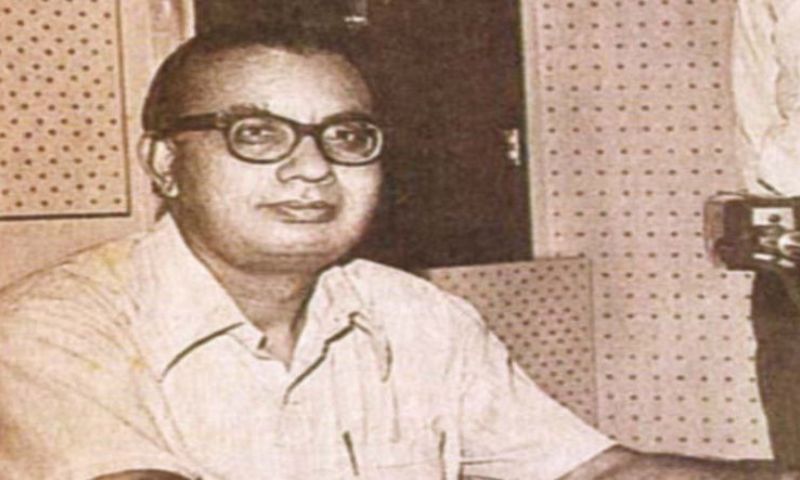Scrolling through social media apps have become a daily ritual for almost everyone where people indulge in memes and funny posts to lighten up their mood. Memes often depicts funny situations, daily life sarcasm, mimicry, and satire which makes them a popular source of entertainment nowadays. However, when talking about the history of humor and satire in Pakistan, one cannot overlook the contributions of Ibn-e-Insha. His masterpiece, Urdu Ki Aakhri Kitab remains a pivotal text in the genre of satire.
In the preface of this book, Ibn-e-Insha writes:
“حالات حاضرہ پر لکھنے میں یہ قباحت ہے کہ حالات کبھی حاضر نہیں رہتے۔”
“Inconvenience about writing on current affairs is that affairs never remain current”
However, the essence of this sentence is in Urdu but this reflects Ibn-e-Insha’s keen sense of humor and his understanding of the fleeting nature of current events. This sentiment is further emphasized by his unique approach to satire, which often blends wit with profound insights.
Ibn-e-Insha’s ability to weave humor into serious commentary has made his work timeless. His opening “AIK DUA” in the book sets a reflective tone which invites readers to engage with both the lighthearted and serious aspects of life. Through his writing, he not only entertained but also encouraged critical thinking about societal issues which makes him a significant figure in Urdu literature.

In contrast to Ibn-e-Insha’s nuanced prose, modern meme culture has emerged as a dominant form of expression particularly among the youth. Memes are often humorous images or videos paired with text that encapsulate relatable experiences or current events. They convey complex ideas succinctly. They foster community engagement by tapping into shared experiences and emotions which makes them relatable and easily shareable.
However, memes also have drawbacks. Misinterpretation of memes can lead to backlash or reinforce harmful stereotypes. Moreover, the fleeting nature of memes means they can quickly lose relevance which creates challenge for creators to maintain their impact. Excessive exposure to social media sites often leads to phone addiction and social isolation.
Memes have profoundly influenced modern culture by shaping social discourse and reflecting societal trends. They serve as a universal language that transcends geographical barriers which allow common people to engage in social commentary on current affairs.
While memes began as lighthearted entertainment, they have increasingly morphed into tools for extreme trolling as well. This shift can be observed in how Pakistani youth utilize memes to ridicule religious and public figures. This reflects a generation grappling with moral and ethical norms. However, memes provide entertainment but they extremely lack the literary quality and depth that characterized Ibn-e-Insha’s writing. The shift from sophisticated satire to quick witted memes reflects broader societal changes in how humor is consumed and produced.
The basic difference in satirical writing of Ibn-e-Insha and today’s meme culture is the lack of quality content. Ibn-e-Insha was a poet and humorist known for his profound observations and mastery of language. His works blend humor with insightful social commentary, showcasing a deep understanding of human nature and societal dynamics. His work was steeped in cultural references and literary traditions. This rich context provides layers of meaning that resonate with readers on multiple levels. In contrast, many modern memes often prioritize shock value or crude humor over substantive critique which leads to a perception of lower quality content. Memes frequently rely on fleeting trends or superficial jokes that may lack the cultural resonance or intellectual engagement. They cater to quick consumption diluting the depth of commentary. They sometimes rely on obscenity or lowbrow humor that detracts from meaningful discourse. While this format allows for rapid dissemination, it often sacrifices the nuanced exploration found in Ibn-e-Insha’s work.
Satirical writings engage readers in thoughtful discourse which further encourages them to ponder on societal issues critically. Whereas memes tend to foster immediate reactions often without deeper contemplation. The immediacy of memes can lead to a lack of critical engagement with the subjects they address.
The evolution of satire in Pakistan from Ibn-e-Insha, Mushtaq Yousafi, Athar Shah Khan Jaidi to contemporary meme culture illustrates a complex interplay between literary quality and societal engagement. While the transition has led to a perceived downgrade in the literary stance of Pakistan, it has also introduced new forms of entertainment that resonate with the youth. As meme culture continues to foster, it is essential to recognize its potential for thriving community engagement and addressing societal issues even if it lacks the depth and nuance of traditional satire. Balancing these two forms of expression could pave the way for a richer cultural discourse ensuring that both literary heritage and modern memes coexist harmoniously in shaping public consciousness.























